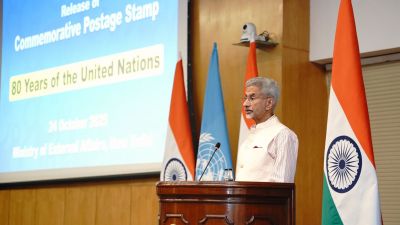Y2K bug to hit 70% of companies
MUMBAI, March 10: About 70 per cent of Indian companies would have computerised systems with Year 2000 date-related problems (widely known a...

MUMBAI, March 10: About 70 per cent of Indian companies would have computerised systems with Year 2000 date-related problems (widely known as Y2K) and many of them might cease to be in business for not deploying required resources in time to find a solution. If not tackled, the Y2K problem could bring to a complete halt a company’s manufacturing, sourcing, supplies and distribution, experts warned in Mumbai today.
Studies suggest that 90 per cent of companies worldwide will suffer serious date-related systems failures, some of which have already started showing. It will cost a whopping $ 600 billion to fix the problem as it will strike more than 500 million computers worldwide but also any other equipment with embedded systems, be it a simple copier, a telephone, an aircraft or a satellite.
"I am appalled at the lack of awareness on the subject," K B Dadiseth, chairman of Hindustan Lever Limited (HLL) said in a seminar organised by Bombay Chambers of Commerce and Industry (BCCI) here today. HLL has beenworking on the problem since 1996 and hopes to complete the project by October 1998, he said.
Many Indian businesses believed they are immune to the Y2K problem. But as Ashank Desai, former president of the NASSCOM and CMD of Mastek warns, "That is not to say we won’t be affected at all." No doubt, the amount of damage is lesser compared to the US or Europe, but only relatively. It could still change a company’s bottomline, make the difference between profit and loss, play truant with inventory levels and much more.
Experts define Y2K problem as the software written by early programmers (in languages like COBOL) which allotted only two digits for dates. When the year changes from 1999 to 2000, these computer systems will assume 00 to be 1900 or no date at all. This can result in incorrect data or complete data loss. Systems may even stop functioning.
While some multinational banks like ANZ Grindlays already have started Y2K work forseeing trouble ahead, opinion is divided on whether public sector banksand institutions will face problems.
The RBI has constituted a committee to ensure Y2K compliancy in its computer systems. This committee will also work in association with the Indian Banks Association to tackle the problem in financial institutions and banks.
"Lack of adequate documentation on what the system is and what it is expected to do is also a big problem," says Achyut Godbole, chief executive, L&T Information Technology Ltd. With most software professionals jumping jobs and going abroad there is also shortage of trained Y2K staff, explains Godbole.
That Y2K is not an Information Technology (IT) problem but a management problem can be guaged from the adverse impact it can have on whole businesses and the huge costs involved in setting it right. Nearly 60 per cent of a company’s IT budget is devoted to making software Y2K complaint in the US. In India, a company employing the services a software consultancy will have to pay on par with what the consultancy receives from its overseas clients.In Desai’s opinion, Y2K is an opportunity to re-engineer applications completely. "However, the organisation should have started early. Right now, the only solution is to repair the software," he adds.
"It is good to be optimistic but we are underestimating the problem," says Desai. There have already been reports of credit cards, which were issued for a period of three years, being rejected. "There are bound to be problems with interest calculations and FDs," agrees K Padmanabhan, vice president, Tata Consultancy Services.





- 01
- 02
- 03
- 04
- 05


























